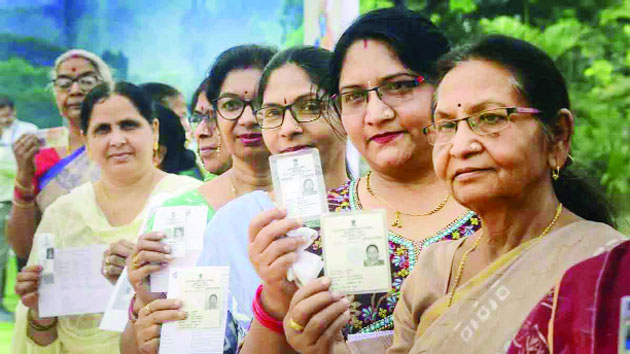Alina Shapoo
The 2024 Lok Sabha elections have culminated in a dramatic reorientation of the political landscape across India, with a significant focus on the performance and participation of candidates from Scheduled Castes (SC) and Scheduled Tribes (ST). Out of the 543 seats in the Lok Sabha, 131 were reserved for SC and ST categories, highlighting the crucial role these communities play in India’s democracy.
This election saw a diverse array of SC/ST candidates in the contest, many of whom bringing fresh perspectives to the political arena. Several candidates were first-timers, reflecting the changing dynamics within their communities. For instance, Chandrashekhar Azad of the Azad Samaj Party emerged victorious in the Nagina constituency of Uttar Pradesh, this marked a significant milestone for Dalit representation in politics.
Another notable new face was Kali Charan Munda from the Congress party, who defeated the former Jharkhand Chief Minister and Union Tribal Affairs Minister, Arjun Munda in Khunti by a margin of nearly 1.5 lakh votes. His victory underscores the electorate’s possible desire for a new leadership.
Interestingly, some SC/ST candidates came from affluent backgrounds, breaking the stereotype that reserved communities lack financial resources. For example, Awadhesh Prasad, a nine-time MLA and Dalit community member, defeated two-time MP Lallu Singh from Faizabad (Ayodhya), a prestigious seat in Uttar Pradesh. Prasad’s success story is a testament to the increasing political influence and economic empowerment within the reserved communities, and as it is said in a reiteration of politics, sometimes money talks-and walks all the way to victory.
Uttar Pradesh, often seen as a political bellwether state, provided a fascinating case study of the evolving SC/ST political landscape. Traditionally a stronghold of the BJP, the state witnessed a significant shift, with the Samajwadi Party (SP) and the Congress making substantial inroads into the BJP’s SC vote bank.
Out of the 17 seats reserved for SCs in Uttar Pradesh, the BJP managed to secure just eight, a steep decline from its previous tally. The SP won seven seats while the Congress and Azad Samaj Party bagged one each. This shift is largely attributed to the SP chief Akhilesh Yadav’s successful narrative of PDA (Pichhda, Dalit, and Alpsankhyak), which resonated strongly with the electorate. Over 86% of the party’s elected MPs in Uttar Pradesh hailed from OBCs, Dalits, and Muslims, reflecting a significant shift in political alliances and voter preferences.
Nationally, the BJP’s performance in SC/ST reserved seats saw a marked decline. The party, which had previously held 77 of these seats, was reduced to 55 in the 2024 elections. Key losses were observed in states such as Uttar Pradesh, Rajasthan, Maharashtra, Haryana, Karnataka, Bihar and West Bengal. In contrast, the Congress made notable gains, winning 32 seats reserved for SCs and STs, a significant increase from their previous tally of seven.
The BJP’s losses were attributed to a combination of factors, including the INDIA bloc’s promises of socio-economic benefits such as a guaranteed annual income of Rs 1 lakh to women head belonging to low income households, jobs, unemployment allowance, and a daily minimum wage of Rs 400 for poor families and MGNREGS. Additionally, fears among the electorate about potential changes to the Constitution further swayed votes away from the BJP.
The 2024 Lok Sabha elections highlighted a transformative period for SC/ST political representation in India. With a mix of seasoned politicians and first-time candidates, coupled with the involvement of wealthier individuals, the elections demonstrated a shift towards more diverse and empowered leadership within these communities. Uttar Pradesh, in particular, stood out as a microcosm of this broader national trend, reflecting the evolving political dynamics and the growing influence of SC/ST voters. As India moves forward, the increased representation of reserved communities in the Lok Sabha is expected to bring new perspectives and priorities to the forefront of national politics.


